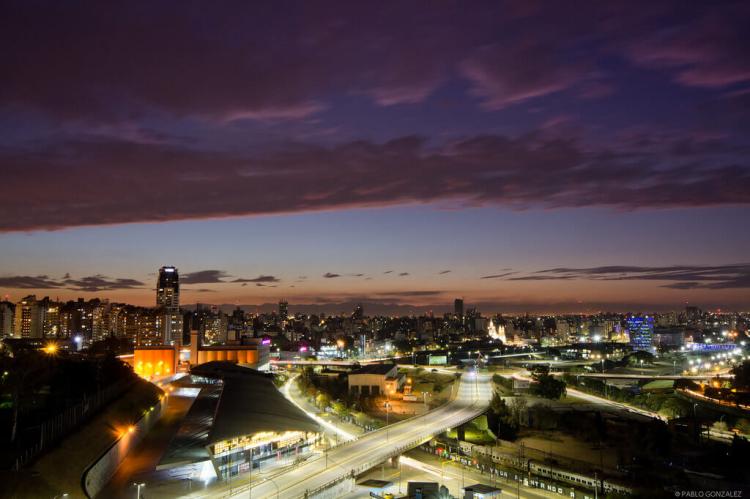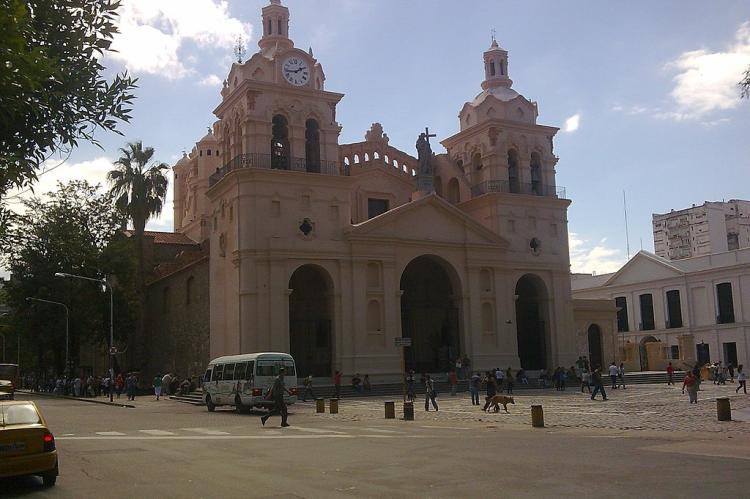Discovering Córdoba: Argentina’s Cultural Heartland
In the heart of Argentina lies Córdoba, a city renowned for its storied past, cultural vibrancy, and picturesque surroundings. From its colonial architecture and academic legacy to modern artistic expressions and a lively culinary scene, Córdoba offers a rich tapestry of experiences.
Córdoba, Argentina: A City of History, Culture, and Natural Splendor
In the heart of Argentina lies Córdoba, a city renowned for its storied past, cultural vibrancy, and picturesque surroundings. From its colonial architecture and academic legacy to modern artistic expressions and a lively culinary scene, Córdoba offers a rich tapestry of experiences. Nestled near the Sierras de Córdoba mountains and home to Argentina's oldest university, Córdoba captivates with its seamless blend of history and modernity, drawing travelers and scholars alike. Delving into Córdoba's unique blend of heritage, culture, and natural allure provides a glimpse into one of Argentina's most captivating cities.
Historical Legacy and Colonial Architecture
Origins and the Founding of Córdoba
Córdoba’s history dates back to its founding in 1573 by Spanish explorer Jerónimo Luis de Cabrera. Established near the Suquía River to facilitate trade and agriculture, Córdoba rapidly became a vital colonial Argentina center. Its strategic location and access to fertile lands fostered economic growth and turned Córdoba into a thriving colonial city with Spanish and indigenous influences interwoven throughout its development.
The Jesuit Block and Córdoba's Architectural Heritage
The Manzana Jesuítica, or Jesuit Block, offers a glimpse into Córdoba's Jesuit legacy and is a UNESCO World Heritage site. This historical district includes iconic structures like the Iglesia de la Compañía de Jesús (Church of the Society of Jesus), Colegio Nacional de Monserrat, and parts of the Universidad Nacional de Córdoba, which date back to the 17th and 18th centuries. These buildings are characterized by thick stone walls, wooden details, and religious artwork, with distinct local adaptations, which are remarkable examples of Spanish colonial architecture with distinct local adaptations. The Jesuit Block's architectural grandeur and historical significance make it one of Córdoba's most revered landmarks.
Universidad Nacional de Córdoba’s Impact on Education and Culture
Founded in 1613, Universidad Nacional de Córdoba is Argentina's oldest university and remains a leading institution in South America. Its establishment marked Córdoba as an intellectual center and attracted students across the continent. The university's influence extends beyond academics; it has been a driving force in social and political movements, particularly through the Reforma Universitaria of 1918, a student-led campaign that called for educational reforms and academic freedom, impacting universities throughout Latin America. The university continues to shape Córdoba's identity as an academic and cultural hub.
Córdoba's Contemporary Urban Culture
Festivals, Art, and Music
Córdoba is celebrated for its dynamic arts scene and annual cultural festivals. Events such as the Festival Internacional de Jazz de Córdoba and the Cosquín Folk Festival draw artists and visitors from across Argentina, showcasing a range of musical genres, folk traditions, and contemporary performances. Córdoba's artistic landscape includes numerous museums and galleries, like the Museo Emilio Caraffa, which highlights Argentine art, and the Teatro del Libertador San Martín, an iconic theater hosting ballet, opera, and symphony performances.
Gastronomy: A Fusion of Tradition and Innovation
Córdoba's culinary scene reflects its cultural diversity and regional traditions. Known for asado (barbecue), Córdoba's parrillas (steakhouses) serve a variety of grilled meats, a staple in Argentine cuisine. Italian and Spanish influences are also evident in Córdoba's food culture, with popular dishes like pasta, empanadas, and artisanal bread readily available. In recent years, Córdoba's food landscape has expanded to include modern fusion cuisine, with restaurants experimenting with local ingredients and international flavors. The city's central market and street food options add to Córdoba's reputation as a gastronomic destination.
Shopping and Nightlife
Córdoba's shopping and nightlife scenes combine contemporary and traditional experiences. Shopping options range from upscale malls like Patio Olmos to artisanal markets like Feria Artesanal in Plaza San Martín, where visitors can find locally crafted goods and unique souvenirs. Córdoba's nightlife is especially lively in neighborhoods like Güemes, with an array of bars, clubs, and live music venues. Known for its relaxed yet vibrant atmosphere, Córdoba's nightlife draws locals and tourists to experience the city's energetic social scene.
Natural Landscapes Surrounding Córdoba
Sierras de Córdoba: Outdoor Adventure and Scenic Views
Beyond the city, the Sierras de Córdoba mountain range offers breathtaking landscapes and a wealth of outdoor activities. The nearby towns of Villa Carlos Paz, La Cumbrecita, and Capilla del Monte attract nature lovers with opportunities for hiking, horseback riding, and birdwatching opportunities. The Punilla Valley, with its rolling hills and valleys, and Lake San Roque, known for water sports and panoramic views, make the Sierras a favorite escape from urban life. This diverse landscape also supports a rich biodiversity, making the region a destination for eco-tourism.
Parque Nacional Quebrada del Condorito
The Parque Nacional Quebrada del Condorito is one of Argentina's most unique national parks. It is known for its rugged cliffs, deep canyons, and the Andean condor, one of the world's largest birds. The park has approximately 37,000 ha (91,000 acres) and ideal conditions for condor conservation. Hiking trails and lookout points allow visitors to observe these magnificent birds in their natural habitat while taking in sweeping views of Córdoba's mountainous terrain. The park's diverse ecosystem and the spectacle of the condors in flight make it a top attraction for visitors seeking natural beauty and wildlife.
Cultural Identity and Local Traditions
Semana Santa and Regional Celebrations
Córdoba's regional celebrations, especially Semana Santa (Holy Week), highlight the city's deep cultural and religious roots. During Semana Santa, Córdoba's streets come alive with processions, music, and traditional gatherings, attracting both residents and visitors. Other regional folk festivals celebrate Córdoba's musical heritage, dance, and artisanal crafts, reflecting customs preserved through generations. These events offer a window into Córdoba's cultural identity and create connections between the city's past and present.
The Cordobés Dialect and Linguistic Heritage
Córdoba is also recognized for its distinct dialect, Cordobés, characterized by a unique pronunciation and regional slang. This dialect, along with local humor, music, and storytelling traditions, has become integral to Córdoba's identity. The Cordobés dialect represents a linguistic heritage that continues to shape local interactions and contributes to Córdoba's distinctiveness within Argentina.
Conclusion
Córdoba is a city that combines history, culture, and natural beauty in a way few other places in Argentina can. From its colonial past in the Jesuit Block to the academic legacy of Universidad Nacional de Córdoba, the city's influence has been both educational and cultural. Its vibrant arts scene, culinary diversity, and bustling nightlife offer a taste of contemporary Córdoba, while the surrounding Sierras de Córdoba and Parque Nacional Quebrada del Condorito highlight the area's natural allure. As a destination that honors its past while embracing its future, Córdoba represents Argentina's rich heritage and dynamic present, offering visitors a compelling blend of experiences that make it unforgettable.





